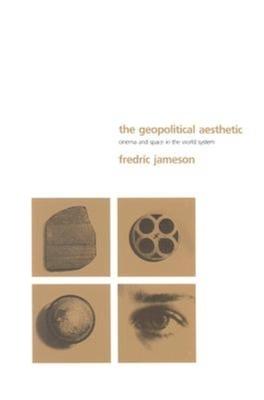"The Geopolitical Aesthetic is a dazzling . . . distillation and application of the theoretical system he first presented in The Political Unconscious (1981)." --The San Francisco Bay Guardian
Taking contemporary films from the United States, Russia, Taiwan, France, and the Philippines, The Geopolitical Aesthetic offers a reading of some of the most interesting films of the last decade and a general account of filmic representation in the postmodern world. Fredric Jameson poses some essential questions: How does representation function in contemporary film? How does contemporary cinema represent an ever more complex and international social reality? Jameson's sophisticated and theoretically informed readings stress the ways in which disparate films--for example, Godard's Passion, Pakula's All the President's Men, Yang's The Terrorizer, Tahimik's The Perfumed Nightmare, Tarkovsky's Andrei Roublev--confront similar problems of representation. The solutions vary widely but the drive remains the same--the desire to find adequate allegories for our social existence.
The Geopolitical Aesthetic, a refinement and development of the arguments put forward in Jameson's seminal work The Political Unconscious, is crucial reading for everyone interested in both film analysis and cultural studies.

The Geopolitical Aesthetic: Cinema and Space in the World System
"The Geopolitical Aesthetic is a dazzling . . . distillation and application of the theoretical system he first presented in The Political Unconscious (1981)." --The San Francisco Bay Guardian
Taking contemporary films from the United States, Russia, Taiwan, France, and the Philippines, The Geopolitical Aesthetic offers a reading of some of the most interesting films of the last decade and a general account of filmic representation in the postmodern world. Fredric Jameson poses some essential questions: How does representation function in contemporary film? How does contemporary cinema represent an ever more complex and international social reality? Jameson's sophisticated and theoretically informed readings stress the ways in which disparate films--for example, Godard's Passion, Pakula's All the President's Men, Yang's The Terrorizer, Tahimik's The Perfumed Nightmare, Tarkovsky's Andrei Roublev--confront similar problems of representation. The solutions vary widely but the drive remains the same--the desire to find adequate allegories for our social existence.
The Geopolitical Aesthetic, a refinement and development of the arguments put forward in Jameson's seminal work The Political Unconscious, is crucial reading for everyone interested in both film analysis and cultural studies.